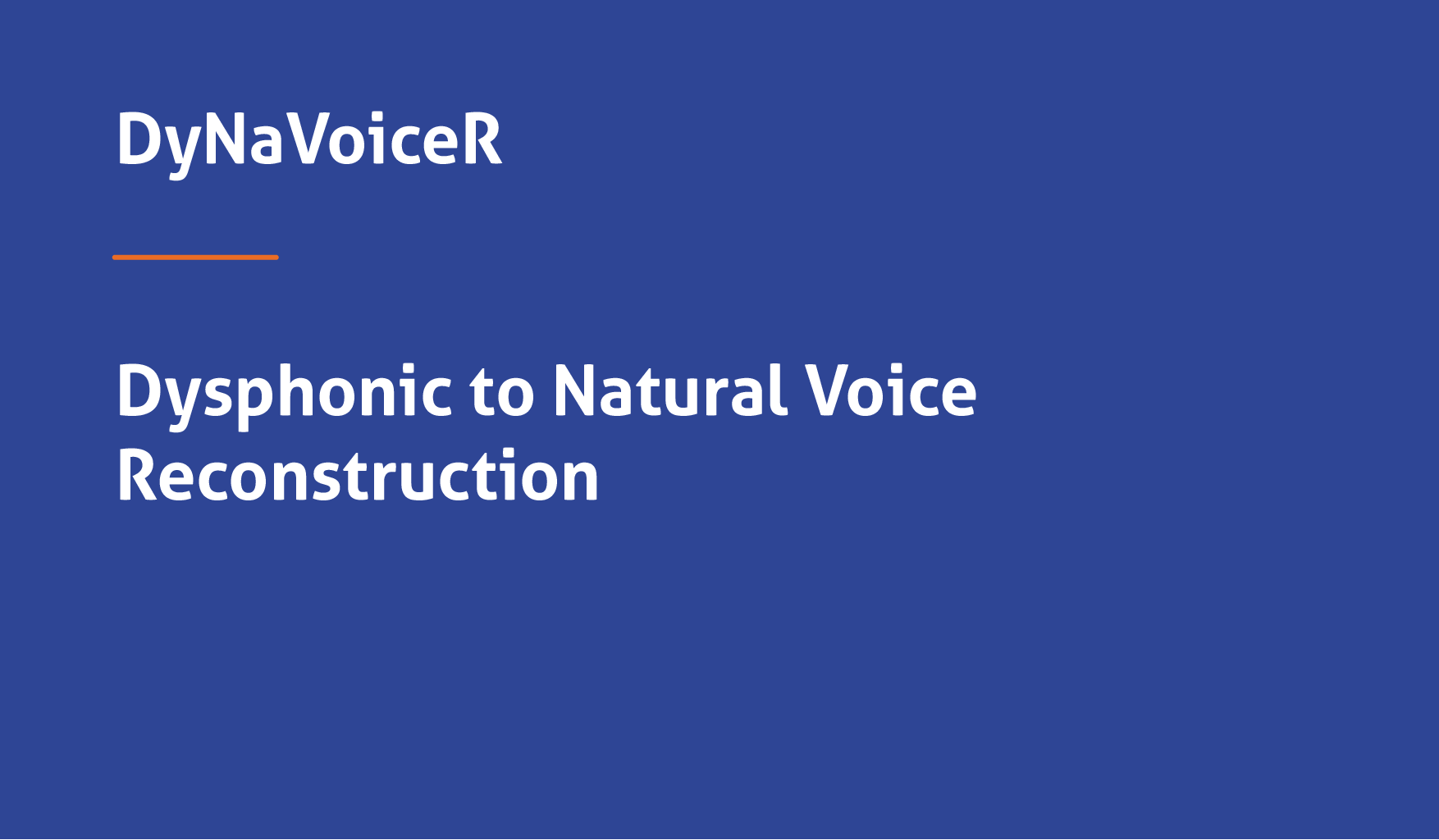Project Description
DyNaVoiceR
With funding from FCT, the DyNaVoiceR project – Reconstruction of dysphonic voice to natural voice focuses on advanced technology allowing to help patients affected by vocal dysphonia, mainly temporary or permanent aphonia, to communicate effectively and comfortably. Our vision is that assistive technology captures the dysphonic voice through a microphone and reconstructs natural voice, in real-time, which is reproduced in an imperceptible way. In this project, we have an exceptional multidisciplinary team, with proven competence and experience in the areas of Engineering, Otorhinolaryngology, and Speech Therapy, in order to carry out dedicated R&D, leading to the design and realization of a Dysphonic Voice Reconstruction system for Natural Voice, totally innovative and automatically (DyNaVoiceR). This system will convert whispered speech sounds into natural speech, through the implantation of synthetic voice, carefully modeled in frequency and time, in order to preserve and enhance linguistic information, to transmit idiosyncratic elements of a voice signature, and to improve its projection.
Abstract
This project proposal involves multidisciplinary R&D with the objective of carrying out an advanced technological assistant that, as far as is known, is not yet available to millions of people who are affected by dysphonic voice, especially temporary or permanent aphonia. These voice problems cause communication difficulties that have a negative impact on professional activity, social inclusion and, in addition, promote info-exclusion, personal isolation, low self-esteem, and even frustration and depression.
The objective of the technological assistant is to reconstruct natural voice from a dysphonic voice in order to allow those patients to communicate effectively and comfortably, in both human-to-human and human-to-machine scenarios, using their phonetic apparatus unchanged.
This project brings together a team with proven competence and experience in the areas of Engineering (Univ.Porto, Fac. Engineering and INESC Tec), Otorhinolaryngology (Univ. Porto, Fac. Medicine and Cintesis), and Speech Therapy (Univ. Aveiro and IEETA), with the purpose of carrying out dedicated R&D that leads to the design and implementation of an innovative and automatic system for the Reconstruction of Natural Voice from Dysphonic Voice (DyNaVoiceR).This system will convert whispered speech signals into natural speech signals through the implantation of synthetic voicing that is carefully shaped in frequency and time, in order to preserve and highlight linguistic information, to transmit idiosyncratic elements of an individual’s vocal signature, and improving vocal projection.
In addition to the management task, the project is structured into four main tasks covering multiple stages from concept to proof of concept. The first task is dedicated to the analysis and accurate modelling of voice signals, in addition to the phonetic segmentation of dysphonic voice. Since it is crucial for all other tasks, this task is divided into five sub-tasks that occupy the first year and a half of the project. The second task is dedicated to innovative techniques and tools for the precise synthesis and control of components of the voice signal that are fundamental for the reconstruction of natural voice from dysphonic voice. It is also divided into two sub-tasks, one covering aspects of glottal excitation, and the other covering aspects of filtering the vocal tract.
The remaining two tasks of the project involve the integration and realization of assistive technology in the form of an app for smartphones and also aspects of usability and tuning.
We believe that the conditions for the success of the project’s objectives are met. The project was designed to leverage the multidisciplinary competence of its members, as well as previous experience of collaborating on projects. In addition, the team members have been heavily involved in dysphonic voice research. An example is a guest article (2016) that sows the seeds of this proposal.
Funding Institution
FCT
Global Budget
239,058.46 €
CINTESIS Budget
13,125.00 €
Reference
POCI-01-0145-FEDER-029308
Duration
01/06/2018 – 31/5/2021
CINTESIS Researchers Involved
Jorge Spratley

